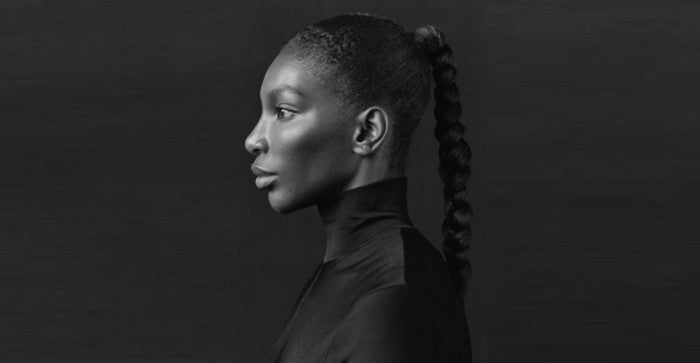When a Black Woman’s Autonomy and Success Leads to Misogynoir
The word “autonomy” can mean many things to a person. It can be the right to control what happens to your body. Your right to practice self-love and self-care. Maybe even your right to simply exist and take up space. But oftentimes, not everyone has access to these things. Not everyone’s rights can be guaranteed, often leaving them deprived of what is truly theirs.
Time and time again Black women have been stripped of this very power, unable to control our own destinies, both on a material and a metaphysical level. In a world dominated by white supremacy, anti-Blackness, and misogynoir, Black women have often been victims, having every right and liberty taken from us. We have had our humanity diminished at every segment and facet of our lives. From what we wear, to who we date, to what we can and cannot wear on our skin and on our scalps, we have rarely had control of our bodies. And, while there is still a fight for complete control and autonomy, we have had small wins throughout history that we can look back on and celebrate.
Not only have we broken rules and made our own lanes when excluded, but we have found ways to gain back the very confidence and power that was never intended to make its way back to us. We have found ways to dominate and flourish in spaces that were not at all made for us. That #BlackGirlMagic has truly made us glow.
However, society as a whole has not yet grown accustomed to this new, improved attitude and assurance that we as Black women have now made our second nature. They don’t see us in this light, as they are used to seeing us on our knees — being ruled over and oppressed for the benefits of other people. It is perfectly fine to see Black women waste away, trying to build someone up, so long as that someone isn’t ourselves. That would make us self-centered and conceited. We are now being demonized for no longer wanting to be mammy’s and stepping stools for others. And because of this, people have no problem giving us labels and categories when they feel as if we are being threatening for simply trying to exist freely.
We are not poised and self-assured, but “arrogant” and “cocky.” Not hardworking and diligent, but “possessive” and “bossy.” Definitely not fierce and passionate, but “trashy” and “doing too much.” There’s never a right way for us to be without being on the receiving end of scathing criticism from the masses.
This becomes an even bigger problem when you factor in the status of having hypervisibility too. While every Black woman on the planet has her share of troubles when it comes to people finding fault with the kind of person she is, Black women who are constantly in the public eye are under a completely different kind of stress. Being public figures, their every move is placed under a microscope, giving ammunition to every media outlet or social commentary critic who wants to send shots their way no matter what they do. The practice of having their bodily autonomy is practically considered a crime.
Earlier this year, singer-songwriter, performer, and actress Chloe Bailey was the target of much criticism and scorn because people felt that her content on social media was not only “attention seeking,” but also too sexy, despite her being 22 years of age. Chloe responded by going live on Instagram in a state of tears, explaining to her viewers that she wasn’t always the most confident, and that she is now just coming into loving who she is.
“There’s been so many times when I felt I wasn’t pretty enough, where I have a lot of issues with my weight, so it’s a pivotal time for me. I’m just now learning at like 22, almost 23, that it’s okay to be all that you are and to stand in that power,” she stated on her Instagram Live.
Black women are often called unruly or rebellious when we stop worrying about how others might perceive us and instead practice radical self-love instead, only concerned about how we view our own image and if we’re living up to the expectations we’ve created for ourselves. The moment we stop catering to everyone else, we are no longer worthy or good enough.
As womanist writer and poet, Audre Lorde, once said, “Caring for myself is not self-indulgence, it is self-preservation, and that is an act of political warfare.” When Black women choose to preserve our well-being and our peace of mind, it is not seen as an act of love, but a battle cry. As it relates to Black women, the world never intended for us to have egos, or for them to even exist in the slightest.
For a Black woman to have even an ounce of love for herself goes the very nature of white supremacy.
Singer and performer Lizzo is a powerful testament to this. As a public figure who is constantly exuding self-love, positivity and confidence, Lizzo is often shamed for not hating herself in a world that wants her to hate herself because of her appearance. Though she is often the topic of discussion because of fatphobic sentiments, it seems as though she is ostracized even more for not being insecure about who she is.
No matter what field or profession we are in, our merits and successes rarely safeguard us of the misogynoir we may face from those around us. Black women who are star athletes know this all too well.
Serena Williams is arguably one of the most influential and successful athletes of our time. In spite of winning 23 Grand Slam singles titles and winning four Olympic gold medals, Williams has spent much of her tennis career being on the receiving end of colorism and masculinization from people who felt as if her success made her more “manly” than anything else. Because of her strong muscular build and dark skinned, she has often been emasculated and deemed unattractive by many, especially from members of the Black community. People have even gone as far as to call her an “ape” or a “gorilla.”
However, when Williams tied the knot with her white husband, Alexis Ohanian, back in 2017, many started to wonder why she preferred to date and marry outside of her race.
In order for Black women to be praised and appreciated, it’s never enough for us to simply be accomplished. We also must follow the terms and conditions that come with those accomplishments as well, most of which are based around still understanding that even though we can be successful, we can never look or act a certain way that might cause controversy or doubt in our ability to remain “respectable.” We have to have the look of worth, along with its reputation, its influence, and its calm and collected demeanor that prevents us from expressing rightful outrage when warranted. The amount of guidelines, rules, and regulations can be overwhelming to say the least.
In both 2012 and 2016, Olympic gymnast Gabby Douglas was made out to be embarrassed and humiliated because people did not like the state of her hair. In spite of Douglas’s major achievements as an olympian who made history on the U.S. Olympic Women’s Gymnastics Team, many people could care less about her accomplishments, only focusing on the styling of her hair. In 2020, it was later revealed by Douglas that she had suffered extreme hair loss and bald spots from the friction of the tight ponytails she wore back when she was competing. She said that seeing the condition of her hair often made her cry, and even made her embarrassed to go to the gym.
As of now, one Black woman who has constantly been berated in the public eye is track and field superstar, Sha’Carri Richardson. Though she is currently the fastest woman in America and is on the U.S. track team, Richardson is facing a 30-day suspension for smoking marijuana to deal with the difficult news of her mother’s untimely death. And though some sympathize with her smoking weed to deal with such a tragic loss, others are acting as if she’s discrediting her entire race.
For many people, Sha’Carri’s body and mind no longer belong to her, but to the entire world as a means to uplift the Black community and show people how important and skilled we are. Her every move is now under a microscope and she has lost the freedom of simply being herself and living her life as she pleases. While it’s beautiful that she’s becoming a role model for many, she isn’t allowed to be human anymore, and that’s an issue.
When we criticize Black women for practicing autonomy and living their lives freely and independently, we are diminishing the fact that they are individuals. We are not mules or people who are in debt to everyone else. We deserve to be who we want to be and be as successful and powerful as we want to be without the shame of being demonized for it. Though we are beginning to finally gain autonomy and control of our own lives and bodies through advocacy and change, it’s important for people to realize that autonomy also includes control over our humanity in the form of who we are and who we choose to be. We are no longer playing the role of being pieces in a chess game that we never wanted to be in.

About the Author:
Maryam Azeeza Muhammad is a poet, womanist, and journalism student from Bridgeport, CT currently attending Temple University in Philadelphia, PA.




JOIN THE DISCUSSION (0 comments)